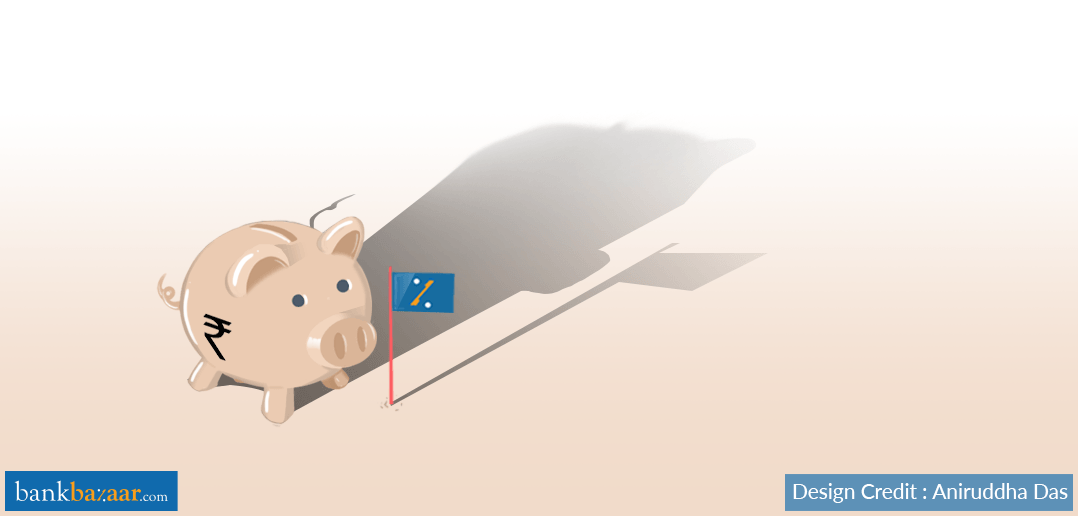Are you on the lookout for order and meaning in your life? It’s time to consider minimalism from a more serious, financial perspective.
 Is 2019 going to be the year in which you finally tick off ‘decluttering’ from your to-do list? Irrespective of whether it is to downsize or to streamline your life, the choice to embrace minimalism is a utilitarian one. As you decide what to keep and what to discard, you’ll be amazed at the positive effects that minimalism can have on your life as well as your finances.
Is 2019 going to be the year in which you finally tick off ‘decluttering’ from your to-do list? Irrespective of whether it is to downsize or to streamline your life, the choice to embrace minimalism is a utilitarian one. As you decide what to keep and what to discard, you’ll be amazed at the positive effects that minimalism can have on your life as well as your finances.
Minimalism is not just a way of practising simplicity or living a frugal existence. It imparts deeper meaning and focus to your life. How will minimalism as a way of life affect your finances you ask? Well, you may begin reconsidering your purchases, valuing quality over quantity, and minimising in order to keep yourself organized.
Here are some decluttering principles you can apply to your finances. Let’s take a look.
Identify what matters and prioritize your spending
Minimising is centred on retaining only what is essential. Recognizing what is of value to you will help you make sound financial choices. Start by trying to differentiate between ‘want’ and ‘need’.
Consider this – once you get rid of the collected junk that you no longer need to store in your life, you’ll realize that you can make do with a smaller space. You could sub-let your apartment or even rent a smaller one for yourself. The choice is yours, but either way, this helps you save on rent or mortgage.
Once you’ve begun identifying what you need, it will be twice as easy for you to set a budget. Consequently, this will enable you to purchase only that which you can’t do without, thereby eliminating unnecessary and impulse buys in the process.
Additional Reading: 3 Tips For Young Women To Manage Their Finances Smartly
Chuck surplus buys out of your closet
Giving up belongings you’ve held on to for years can be quite taxing. But, here’s the thing. Minimalism does not mean giving up your mother’s favourite set of dinnerware. It means holding on to valuables and essentials and giving up the unnecessary or whatever you won’t miss having.
The same applies to finances. A financial minimalist is not expected to give up the occasional outing with his/her family. Instead, the focus should be on making the most of one’s income by cutting down on impulse buys and not purchasing things that can otherwise be borrowed.
To reduce expenditures in your budget, start with things that are not important to you. It could be anything from your unused gym membership to the extra data you never use on your internet plan.
For instance, if you’re a bookworm and feel that the money spent on buying books (and storing them in your home) is blowing up your savings, switch to library membership. That way, you can still have an unlimited supply of books at a very minimal cost.
Additional Reading: How Pessimism Can Actually Improve Your Finances
Choosing a debt-free life
Financial minimalism stands for distancing yourself from the stress and worry caused by unavoidable circumstances and insists that you take control of your money and choices. Each debt that you pay off eliminates one complication from your life.
One of the surest ways to detangle your knotty financial life is to strive to become debt-free. It does take time and patience, but just setting up a plan for it can do you a world of good.
Additional Reading: Signs That You’re Great At Handling Your Finances
Seeking balance
Generally, our financial decisions are based on price. Our impulse purchases are mostly prompted by questions such as, ‘Am I buying at a good price? Is it on sale? Will I get more discount online?’
While these are good justifications to purchasing, minimalism opens the window to an entirely new dimension of financial decision making.
Instead of fixating just on price, try considering other aspects of your impulse buys. For instance, ask yourself if it is the best use of your money. ‘Do I already have something at home that can help me do the same job?’ ‘Is this a durable and quality product?’ ‘Can I borrow from a friend or rent it for short-term use?’
Raising such questions will help you make financial decisions more consciously.
Additional Reading: Money Lessons For January To Keep Your Finances Healthy Through The Year
Wondering what to do with the heap of things you want to discard? Try holding a garage sale, donating to charity, giving away hand-me-downs, or selling them to a second-hand thrift store. There are plenty of options to choose from.
Additional Reading: How To Help Your Domestic Help Plan Finances
Managing your money should be a daily habit. Incorporate it in your daily activities. That way, you can easily log into your bank account, inspect your balances, and handle your purchases. This will help you track your money and effectively handle your finances.
Are you a financially-struggling minimalist on the lookout for the perfect financial solutions for stress-free living? Look no further. We’re here to help.